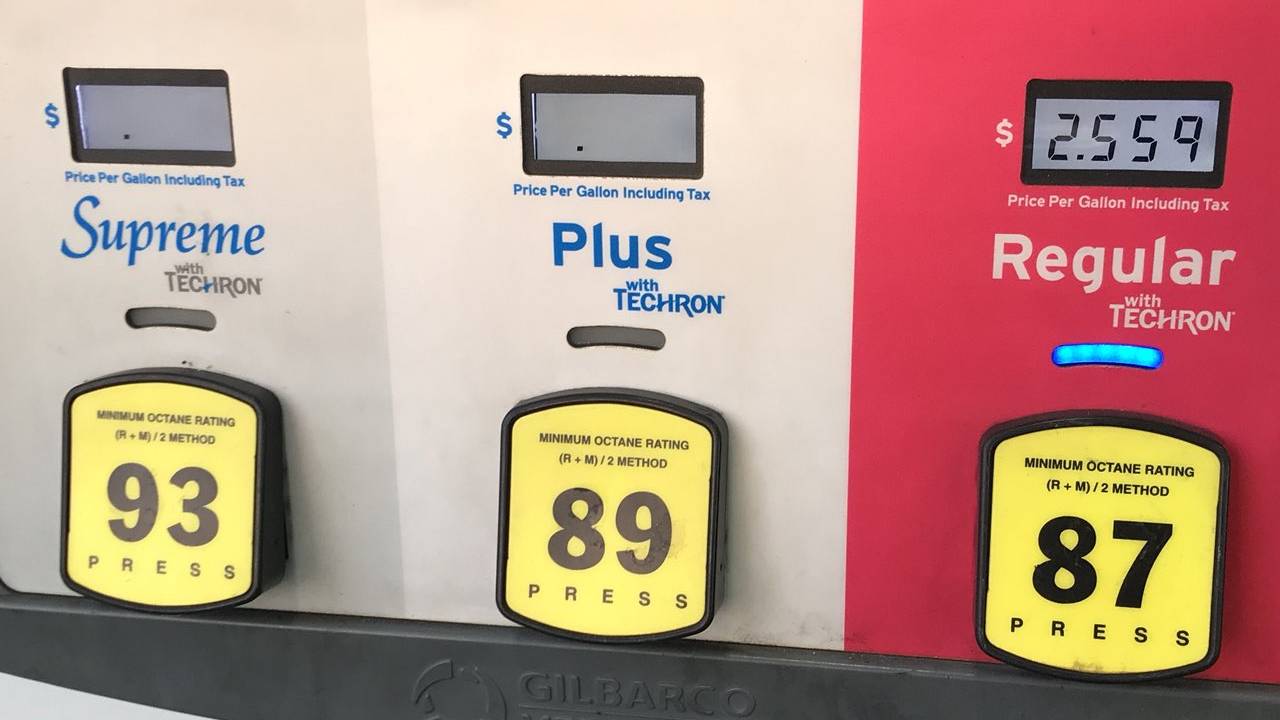[ad_1]

November 12, 2023
When fueling your vehicle, you’ll have to select the right type of gasoline. If it is your first time pumping gas into your car, you might not know what octane rating to choose! Using the correct fuel not only ensures optimal performance but also helps prevent potential engine problems and maximizes fuel efficiency. In this guide, we will discuss how to determine the appropriate type of gas for your car, delve into the different octane ratings, and debunk common misconceptions about octane levels.
How to Know What Type of Gas to Use in Your Car
Determining the correct type of gas for your car is essential for its smooth operation. Here are the steps to help you make the right choice:
1. Check Owner’s Manual
Your car’s owner’s manual is your go-to resource for essential information about your vehicle, including the recommended fuel type. Look for a section that discusses fuel requirements or specifications. The manual will typically specify the recommended octane rating.
2. Check the Fuel Door or Gas Cap
A quick glance inside the fuel door or near the gas cap often reveals a sticker indicating the recommended fuel type and octane rating. This label is easy to find and provides valuable information about your car’s fuel needs.
3. Search Your Vehicle Online
If you don’t have your owner’s manual around and your gas cap does not say what octane gas to use, you can check online! Simply search “what type of gas to put in a [year] [manufacturer] [model]” on a search engine such as Google. Here you will most likely find your with a citation to the owner’s manual.
Different Octane Ratings
Gasoline is available in various octane ratings, typically 87 (regular), 89 (mid-grade), and 91 or 93 (premium). Octane rating represents a fuel’s resistance to engine knocking or pinging during combustion. Here’s a quick overview:
Regular (87 Octane)
Most cars are designed to run efficiently on regular unleaded gasoline with an octane rating of 87. Unless your owner’s manual specifies otherwise, using regular gasoline is sufficient for the majority of vehicles. 87 Octane is almost always the cheapest fuel option.
Mid-Grade (89 Octane) and Premium (91-93 Octane)
Higher octane fuel is designed for vehicles with high-performance engines or those operating under specific conditions. Using mid-grade or premium gasoline when it’s not required won’t provide any noticeable benefits in terms of performance or fuel efficiency.
Common Misconceptions and Questions About Octane Levels
There are several misconceptions about octane ratings that motorists should be aware of:
Does Higher Octane Boost Performance?
Using a higher octane fuel than recommended does not enhance your car’s performance. It won’t make your vehicle faster or more powerful unless your car’s engine is specifically designed to require a higher octane level.
Does Higher Octane Improve Fuel Efficiency
Higher octane gasoline does not inherently improve fuel efficiency in most vehicles. Using the recommended octane rating is sufficient to achieve optimal fuel economy.
Does Octane Clean Engines?
Octane ratings have no impact on the cleaning properties of gasoline. All modern fuels contain detergents and additives designed to keep your engine clean, regardless of the octane level.
What to do if You used the Wrong Fuel Grade in Your Car
If you accidentally use the wrong octane rating in your car, don’t panic. In most cases, a one-time use of the wrong octane won’t cause significant harm to your vehicle. Simply continue driving your car as usual, and make sure to use the correct octane rating specified in your owner’s manual during your next refueling.
Conclusion
As a new teen driver, choosing fuel grades can be very intimidating. It is important to be familiar with your car’s needs for maintaining performance and efficiency. Always consult your owner’s manual and follow the manufacturer’s recommendations. Don’t fall for common misconceptions about octane ratings, as using a higher octane fuel than necessary won’t provide any advantages. By understanding your car’s fuel requirements, you can ensure it runs smoothly and efficiently for years to come.
[ad_2]
Source link
Jarastyle Teen’s – #Gas #Put #Car #Simple #Guide
Courtesy : https://yourteenmag.com/life-skills/car-basics/what-type-of-gas-to-put-in-your-car

